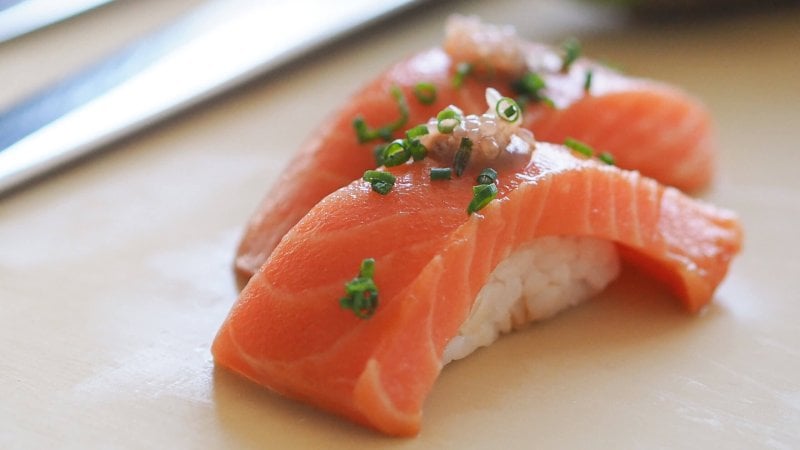Wildtype, a cell-cultured meat company pioneering the field of cellular agriculture to grow cuts of seafood, without fishing or fish farming, invited me to a private tasting at a sushi bar in the East Village of Manhattan to try its sushi-grade salmon. As the first and only cell-cultured seafood brand to raise $100 million in Series B funding, and with high-profile investors like Leonardo DiCaprio, Robert Downing Jr., and Jeff Bezos, I had high expectations; I was not disappointed. In fact, it tasted exactly like conventional sushi-grade salmon (which arguably isn’t the case with many plant-based alternatives), and as a bonus, didn’t have any of the common contaminants such as mercury, microplastics, antibiotics, or pesticides.
And then there’s the question of when this product will be available for consumers. It’s currently illegal to sell cell-cultured seafood in the United States, as the U.S. Food and Drug Administration (FDA) hasn’t granted the nascent industry regulatory approval.
“The FDA has been a trusted partner throughout our multi-year consultation process, and we look forward to continuing our work with them […] We understand people have questions about this technology and we believe transparency is absolutely critical in the important work ahead of building trust with our future customers. As a result, we plan to partner with the FDA to make a significant portion of our pre-market safety assessment available to the public.” [says co-founder Justin Kolbeck]































